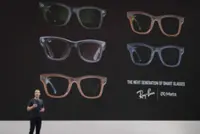LONDON (Reuters) -France's radiation watchdog has banned sales of Apple's iPhone 12 after tests that it said showed the smartphone breached European radiation exposure limits.
The Agence Nationale des Frequences (ANFR) said on Tuesday the model's Specific Absorption Rate (SAR) - a measure of the rate of radiofrequency energy absorbed by the body from a piece of equipment - was higher than legally allowed.





